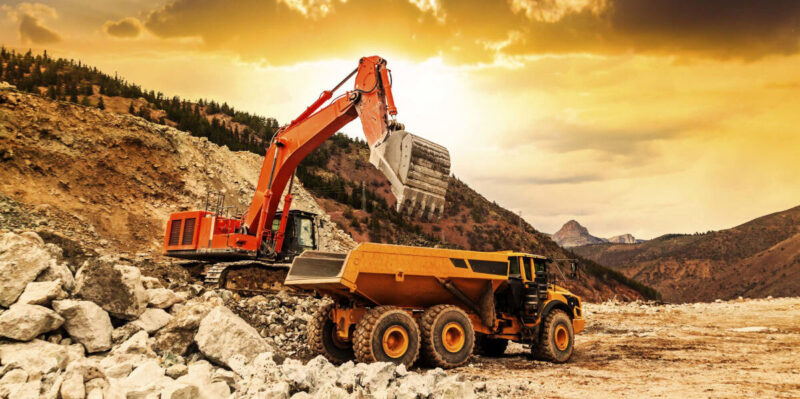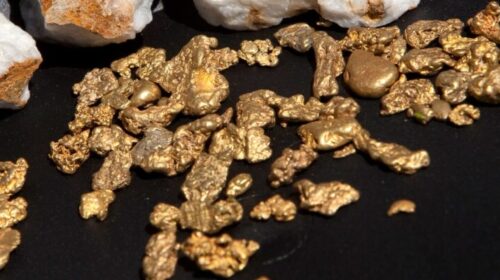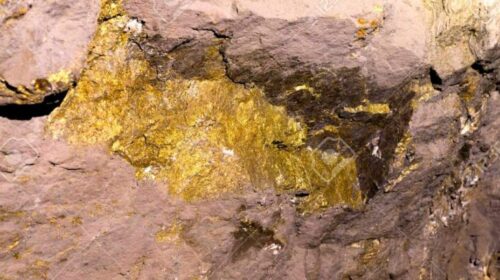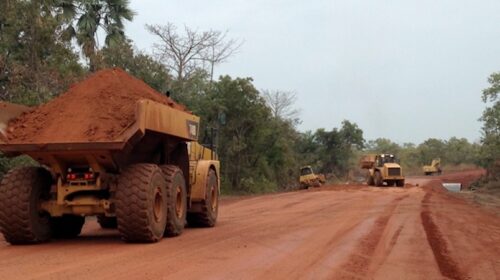Chinese dominance of DRC mining sector increases economic dependence: Mines Chamber
The Democratic Republic of Congo’s mining sector is now almost 70% dominated by Chinese investors and that makes it vulnerable to Chinese economic developments, John Kanyoni, vice-president of the country’s Chamber of Mines said during the DRC Mining Week organized by Mining Review Africa.
“The mining portfolio [in the DRC] is almost 70% under the control of the Chinese, so when China is affected we are also affected as an industry,” Kanyoni told a webinar this week on investing in the DRC. ‘Even before COVID-19 we were facing some issues regarding mining: the slowdown of the Chinese economy already in 2019 really affected demand from the mining industry in Africa in general and the world.
Chinese investors are particularly dominant in the DRC’s copper and cobalt-rich Haut Katanga and Lualaba areas of former Katanga province, he said, with investors including China Molybdenum’s Tenke Fugurume, and Minerals and Metals Group MMG.
Difficult relations between China and the US and to some extent with Europe have been a factor in the DRC’s mining industry development, Kanyoni noted.
Other investors active in mining in the DRC include global traders Glencore and Trafigura and Canada’s Ivanhoe Mines and Barrick Gold Corporation.
The country’s 2018 Mining Code — while criticized for being more restrictive than the 2002 code which it replaces — aims to attract more foreign investment, preferably into local partnerships, according to the webinar participants.
Royalties
While the new code has increased some minerals royalties to 2.5% from 2%, this is still seen as competitive compared with rates in some other African countries, according to Kanyoni. In Zambia royalties are typically 4%-6%, in South Africa 5%-7% and in Ghana 5%, he said. With the new code, local shareholders have, compulsorily, a 10% shareholding in new mining companies and profits are taxed at 50% on some mineral products, which is in line with South Africa’s taxation on gold, the Chamber of Mines executive said.
The DRC is by far the world’s largest producer of cobalt, with its output reaching 90,000 mt last year, almost 70% of global supply. Demand for cobalt has increased dramatically in recent years for use in battery production for electric vehicles, where Chinese and other Asian manufacturers are in a leading position, although European manufacturers are now rapidly gaining ground, spurred on by regional policies to increase EVs market share.
Some battery and carmakers have made moves to source cobalt from outside the DRC, or reduce their dependence on cobalt supplies overall due to fears of purchasing material from the DRC that may be linked to child labor or other practices no longer acceptable to supply chains increasingly governed by environment, social and governance issues. Artisanal mining by small operators is said to account for between 20% and 40% of the DRC’s cobalt production.
The DRC, Africa’s biggest copper exporter, also produced 1.06 million mt of copper in 2019.
During the coronavirus pandemic the DRC’s mining sector has largely continued producing with protective measures put into place for employees, which worked very well, Kanyoni said. After a difficult couple of years “the industry is in a better position now”, he said.
Abundant reserves
The DRC has one of the largest mineral potentials in Africa, with copper reserves of almost 120 million mt, cobalt reserves the world’s biggest at more than 4.5 million mt, lithium reserves of 3.1 million mt, and niobium, zinc and manganese reserves all more than 7 million mt, and with gold reserves at 600 mt, Kanyoni said.
Infrastructure in general and energy in particular continues a major challenge, according to Kanyoni. A deficit of 700 MW currently exists in the former Katanga province’s mining sector, but projects exist to bring on almost 1 GW, and energy is imported from neighboring countries, Kanyoni said. The country has significant potential for hydro and solar power generation, he said.
The country continues to have issues with border control bureaucracy and insufficient road infrastructure, he said.
The whole of the DRC revolves around mining, CEO of the South African Capital Equipment Export Council Eric Bruggermann said. Partnerships with local operators are essential for a foreign investor’s success, as well as a commitment to the host country and its rules and regulations, and an understanding of political changes, he said. The South African mining sector sells Rand 11 billion ($720 million) worth of mining equipment to the DRC a year. “But you can’t just deliver goods there and expect to service this from South Africa,” Bruggerman said.
78 total views , 1 views today





